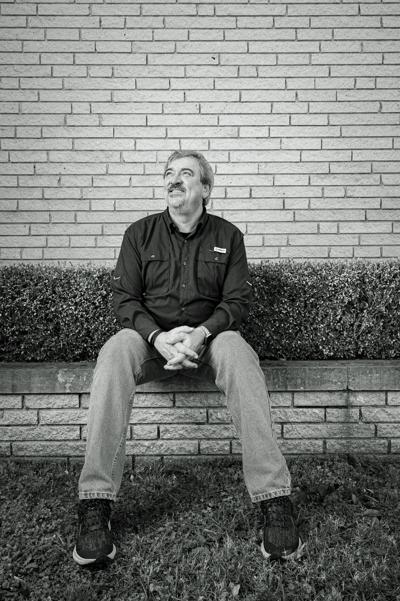
No one should be homeless in Williamson County.
The largely suburban county south of Nashville is one of the wealthiest in the country, with a median income of $115,806. There’s a thriving community of churches, charitable organizations and wealthy donors who gladly throw money at causes from historic preservation to food insecurity.
But every day, Kevin Riggs, the pastor at Franklin Community Church and the head of the Williamson County Homeless Alliance, sees people experiencing homelessness with nowhere to turn.
Riggs says he started the alliance once he realized there was not an organization dedicated solely to caring for the county’s homeless community — “Franklin doesn’t need another church, Franklin doesn’t need another nonprofit,” he says. The organization operates out of a nondescript office just a five-minute drive off Franklin’s picturesque city square. It provides daytime shelter, job resources, financial support and occasionally just a place to get showered for work. For residents who struggle to find housing in a county where the median home price is around $830,000 but the minimum wage is still $7.25 an hour, it’s a lifeline.
But Riggs knows there’s more work to do. There always is in Franklin.
“I know that, when push comes to shove, to do what needs to be done with the homeless is going to be hard in Franklin,” Riggs says. “There’s this mentality — it’s a white-privilege mentality, really — that all you’ve got to do is get a homeless person a job, and they’ll be OK.”
Riggs recently cut the ribbon on the John and Joyce McMillen House, a group home meant to be a stable base for formerly homeless people transitioning into permanent housing. He helped spearhead Franklin’s Fuller Story project, which worked with city government to bring a statue honoring Black Civil War veterans to the city square and bring Black history to the fore in the majority-white county. He’s written letters denouncing the death penalty, and he visited the state Capitol to call upon Gov. Bill Lee to enact a “moral policy agenda” in Tennessee that, among other things, rejects discriminatory bills against the LGBTQ community.
“I feel strongly that one of the primary roles of a pastor and the church is to be the conscience of the community,” Riggs says. “Somebody’s got to stand up and say, ‘This is what’s going on, and it needs to change.’”
It can feel like an endless struggle in a place like Franklin, where well-to-do churchgoers might donate money to serve impoverished communities abroad but ignore vulnerable communities in their own backyard. It’s not like there’s no money for charitable causes: In 2022, the county opened a new $18 million animal shelter funded by taxpayer dollars and charitable contributions. But Williamson County does not have a full-time homeless shelter.
“I love animals, so I’m glad they built that,” Riggs says. Even so, he says, “We were able to put $15 million [in county tax dollars] toward an animal shelter, but we’re not willing to do that to help house the homeless.”
Riggs has lost friends and associates by raising his voice so loudly. Evangelical Christianity is widespread in Williamson County, and many of the faith’s loudest adherents are politicians like Gov. Lee or megachurch pastors who, at best, shy away from topics like systemic racism or inequality.
“There are evangelical pastors who think I’ve lost my soul,” Riggs says with a soft smile. “No, that’s not true. If anything, I’ve found it, seeing what’s going on, reading scripture.”
This week, he traveled to Oxford University to attend a colloquium about racialized Christian nationalism. When he was first invited to the event, he thought it was about “radicalized Christian nationalism” — not that there’s not much of a difference in his eyes.
“I’m almost convinced that, in Tennessee, they want a theocracy,” Riggs says. “The Bible and history have shown that theocracy is a horrible idea and highly oppressive.”
Riggs still considers himself, “at least theologically, a conservative evangelical.” For him, that means basing his faith on the Bible that calls on him to love others and fight for justice. “The way you love a God you cannot see is loving those you can see. The way you serve a God you cannot see is by serving those you can see.”
This credo, adapted from a passage in 1 John, is a key part of his personal faith. It’s what helps him keep pushing through the endless battles in Franklin.
“If I do something and no one notices, and no one says, ‘Thank you,’ it doesn’t really matter, because I didn’t do it for you,” Riggs says. “This is my service to God and the way I worship God.”
Photographed by Eric England at Williamson County Homeless Alliance
Profiling some of Nashville’s most interesting people, from drag legend Tina Louise to TSU’s Flutebae and more






